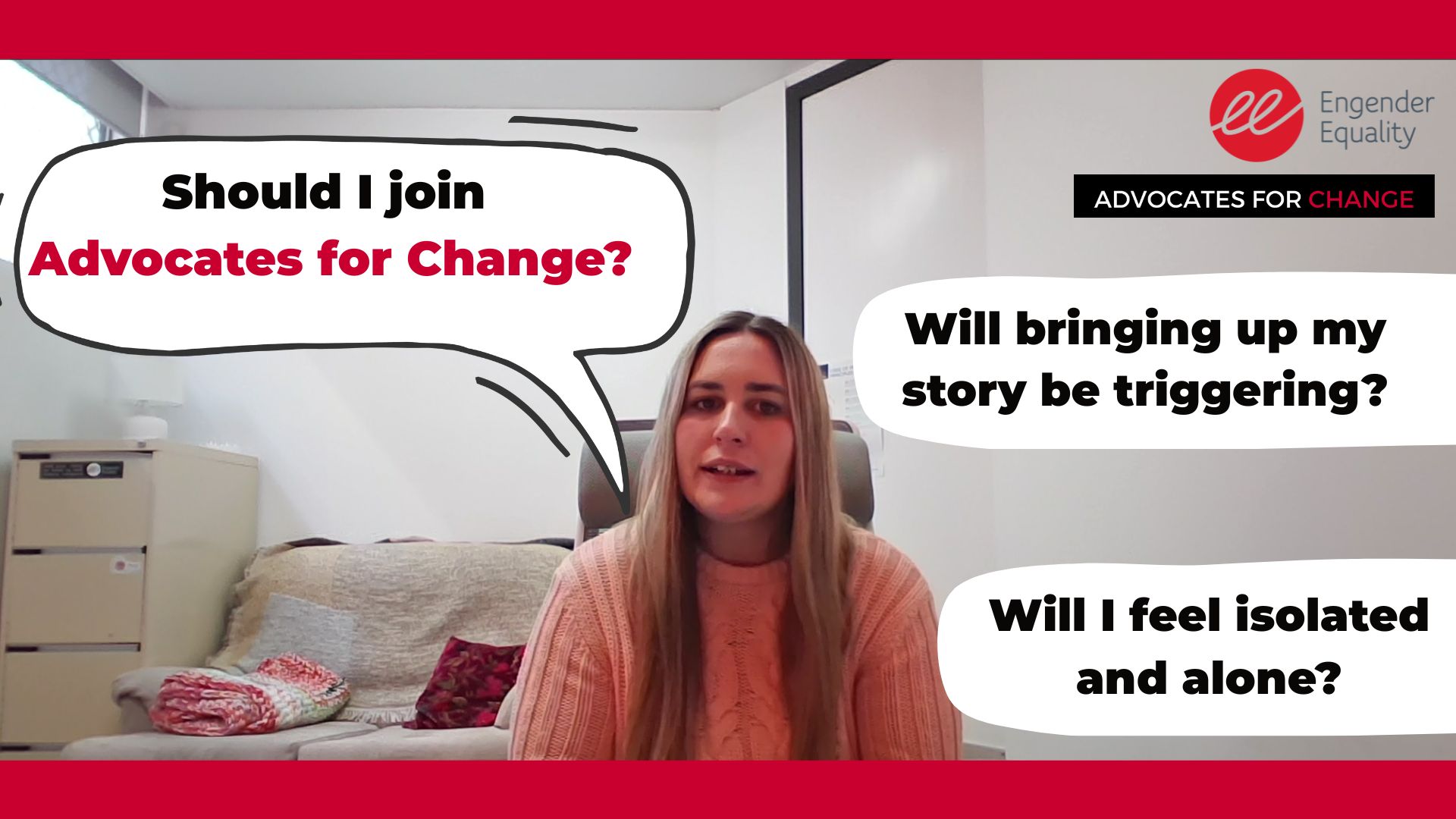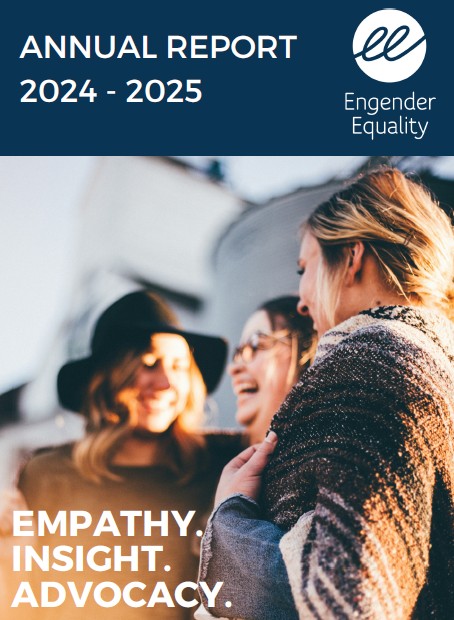Video - How much of my story will I have to share?
If you are a victim-survivor of family violence and have been to prison, our advocacy program is for you!
We understand that you may have some questions or concerns about becoming an advocate. You are not alone.
In this video, Kianna talks about how much you will have to share as an advocate to end gender-based violence.
Video - What about confidentiality and privacy?
If you are a victim-survivor of family violence and have been to prison, our advocacy program is for you!
We understand that you may have some questions or concerns about becoming an advocate. You are not alone.
In this video, Kianna talks about how you have the choice to reveal or conceal your identity. We are guided by you.
Video - What if sharing my story pulls me back into a life I've left behind?
If you are a victim-survivor of family violence and have been to prison, our advocacy program is for you!
We understand that you may have some questions or concerns about becoming an advocate. You are not alone.
In this video, Kianna addresses a concern she has had, “What if sharing my story with the world leads me back to a lifestyle I have overcome such as going back to prison or active addiction?”
Video - What if I am blamed, judged or criticised?
If you are a victim-survivor of family violence and have been to prison, our advocacy program is for you!
We understand that you may have some questions or concerns about becoming an advocate. You are not alone.
In this video, Kianna talks about her concerns around being blamed for the abuse she endured, and being judged and criticised for speaking up.
Video - Will telling my story make a difference?
If you are a victim-survivor of family violence and have been to prison, our advocacy program is for you!
We understand that you may have some questions or concerns about becoming an advocate. You are not alone.
In this video, Kianna discusses how sharing your story will make a difference.
News item - The Mercury - Family violence delays
By Sue Bailey
Posted to The Mercury, 09/11/25
A great article by Sue Bailey at The Mercury on Sunday talking about the annual Tasmania Police report showing an increase of 1,125 incidents of family violence between 2023 and 2024.
Engender Equality Annual Report 2024/25
Welcome to the Engender Equality 2024/25 Annual Report.
Media Release - Death of young Aboriginal woman in custody sparks calls for reform
MEDIA RELEASE
29 October 2025
DEATH OF YOUNG ABORIGINAL WOMAN IN CUSTODY SPARKS CALL FOR REFORM
Tasmanian advocate organisation, Engender Equality has called for reform after the death of Chelsea Bracken at Mary Hutchinson Women’s prison on Monday 27 October.
Engender Equality CEO, Alina Thomas extends deep condolences to the family and friends of Chelsea Bracken for their profound sense of loss, grief and anger.
“While the circumstances of Chelsea’s incarceration and death are unclear, the factors leading to women entering and returning to prison are deeply complex and often rooted in repeated and intergenerational experiences such as family and sexual violence, homelessness, poverty and child removal.
We know up to 98% of women prisoners have experienced physical abuse and up to 90% have experienced sexual violence and/or survived childhood sexual assault.1
Kianna Whaling, a victim-survivor advocate with lived experience of the Tasmanian prison system said,
“Throughout my life, I was heavily addicted to substances as a coping mechanism to both numb and block out trauma that stemmed from intimate partner violence and sexual assault.
“As a result, I began selling substances to support my addiction which led to incarceration.
“Before my trial commenced I was told to prepare for 12 years and realised I needed to take steps to resolve my trauma and reached out to a counselling service.
I informed the prison nurse I was feeling a little uneasy after the counselling session and I was moved to solitary confinement under ‘suicide watch’ where I was left for several days without human contact, and only a camera monitoring my state.
Alina Thomas said we must move away from a model that punishes victim-survivors for surviving violence, and instead focus on support, rehabilitation and justice.
“Correctional staff need to be more trauma-informed, and protocols should be in place to prevent re-traumatising women in prison.
“Our justice system must do better at supporting victim-survivors in prison.” Ms Thomas said.
In the ten years from 2014 to 2024, Tasmania had the highest increase in the adult prison population; the highest increase in First Nations prisoners; and the highest increase in women prisoners of any State or Territory in Australia.2
Women with lived experience of violence and incarceration are available for interview by contacting 0415 740 524, email advocates@engenderequality.org.au or visit Advocates for Change – Engender Equality.
Ends.
Media Contact: Alina Thomas 0438 788 291
Newsletter - New systems abuse resources launched - Engender Equality Update - October 2025
We are proud to share a suite of new resources designed to support Tasmanian family violence practitioners and honour the powerful contribution of victim-survivors whose lived experiences have shaped these works.
News item - Report: system failing family violence victims
By Bridget Clarke
Hobart Mercury, 21/10/25
A damning report by a Tasmanian family violence organisation has laid bare the extent to which institutions intended to support victim-survivors are failing to address, and often, perpetuating abuse.





